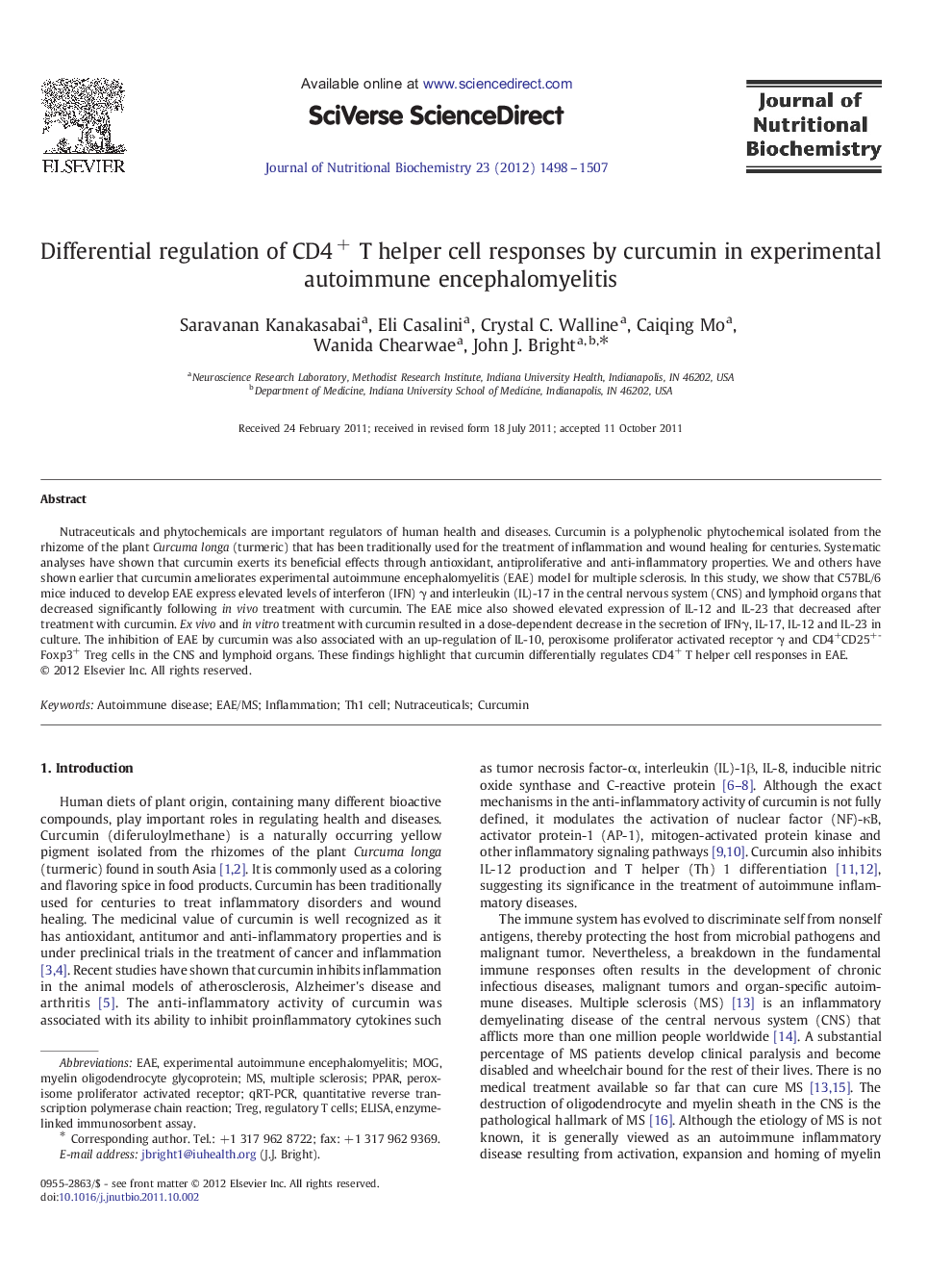| Article ID | Journal | Published Year | Pages | File Type |
|---|---|---|---|---|
| 1990357 | The Journal of Nutritional Biochemistry | 2012 | 10 Pages |
Nutraceuticals and phytochemicals are important regulators of human health and diseases. Curcumin is a polyphenolic phytochemical isolated from the rhizome of the plant Curcuma longa (turmeric) that has been traditionally used for the treatment of inflammation and wound healing for centuries. Systematic analyses have shown that curcumin exerts its beneficial effects through antioxidant, antiproliferative and anti-inflammatory properties. We and others have shown earlier that curcumin ameliorates experimental autoimmune encephalomyelitis (EAE) model for multiple sclerosis. In this study, we show that C57BL/6 mice induced to develop EAE express elevated levels of interferon (IFN) γ and interleukin (IL)-17 in the central nervous system (CNS) and lymphoid organs that decreased significantly following in vivo treatment with curcumin. The EAE mice also showed elevated expression of IL-12 and IL-23 that decreased after treatment with curcumin. Ex vivo and in vitro treatment with curcumin resulted in a dose-dependent decrease in the secretion of IFNγ, IL-17, IL-12 and IL-23 in culture. The inhibition of EAE by curcumin was also associated with an up-regulation of IL-10, peroxisome proliferator activated receptor γ and CD4+CD25+Foxp3+ Treg cells in the CNS and lymphoid organs. These findings highlight that curcumin differentially regulates CD4+ T helper cell responses in EAE.
